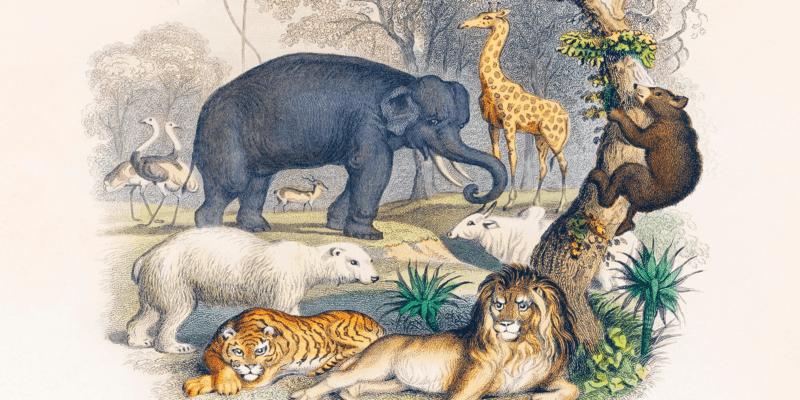Nothing happens. Nobody comes, nobody goes…
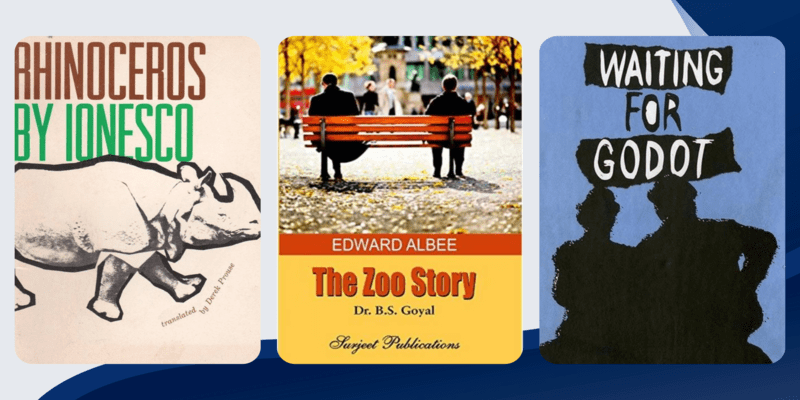
Have you ever stopped and wondered about the meaning or meaninglessness of life? What is ‘life’ and its purpose in this modern world where millions are trying to make a living every day and are walking like a flock of sheep on a single street? The 20th Century playwrights had similar concerns. Around the time of the Second World War and rampant industrialisation, a group of playwrights, known as the ‘absurdists’ built on the existential philosophy of life. As the name suggests, these plays were weird and often had open endings. The mention of grotesque animals or even reptiles such as lizards in place of humans was a common finding. Don’t be surprised if you find a human being converted into a cockroach or a rhinoceros in one of these plays. The purpose of such conversions is to show the plight of the modern human caught up in the world with nowhere to go.
Escape is an impossibility in these plays as much as it is a requirement. The ending, of course, is tragic. The history of tragedy can be traced back to Greek philosopher Aristotle, who helped in defining tragedy for the world. According to him, tragedy was to speak of a tragic hero, who was to be high up in the order. As the modern world set in and kingship witnessed a sharp decline, the meaning of tragedy changed. Playwrights began to cater to the problems of the commons. Heroes in absurdist plays are not kings or their sons. They are as common and as tragic as they can get. Now, why are we to look at these plays a century later? Well, has much changed? Aren’t we still slaves to modern life and its entrapment?Let us look at some of these masterpieces bringing to our notice the jail that the modern world is.
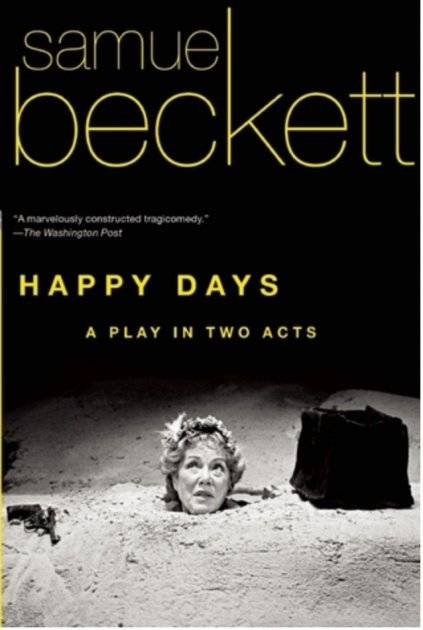
Happy Days by Samuel Beckett
Another masterpiece by Beckett in the realm of absurd drama is a story of a semi-buried woman who recounts her happy days. Happy Days continues Beckett’s preference for two-act plays and opens up with a woman, Winnie, who is buried to her waist while her husband is almost invisible due to the mound. In this absurd condition of hers, she continues her routine and keeps saying, “This is a happy day”. As the second act takes over, Winnie starts sinking deeper but never sinks completely. Beckett does not provide his audience closure. Winnie’s pain is endless for she doesn’t either get out or sink in completely. What Beckett wants to represent is the endless repetition of dying moments rather than death itself.
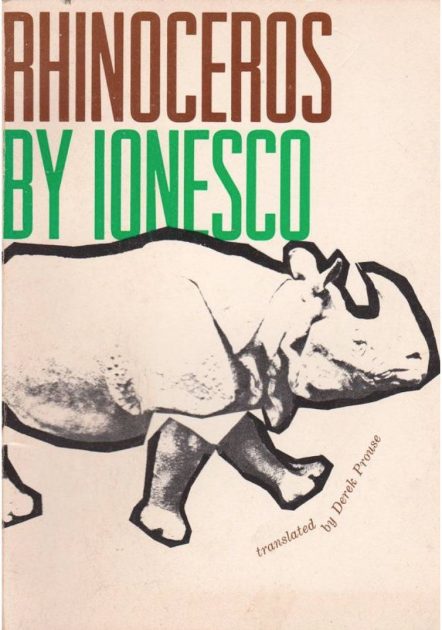
Rhinoceros by Eugene Ionesco
Did you read the earlier warning about men getting transformed into cockroaches in absurd plays? Well, something similar happens in this one by Ionesco. The only difference is, it’s not just one human getting converted into an animal but a whole town! One morning, two friends Jean and Berenger meet at a coffee shop in a provincial French village. Mid conversation, they notice a rhinoceros walking down the street quite casually. Several others follow and the whole town becomes full of rhinoceroses. After some time, everyone turns into a rhinoceros except Berenger. Through his protagonist, Ionesco explores the idea of solitude in the modern world amidst the presence of so many strangers.

The Dumb Waiter by Harold Pinter
What if an empty lift brings you food and secret messages? Sounds as spooky as absurd. In his extremely short, one-act play, Pinter plots two hitmen, Ben and Gus who are supposed to kill someone. As they wait for their assignment, they argue over little things such as appropriate semantics of everyday phrases. The gossip between the two hitmen goes on until a dumbwaiter lift starts delivering them food from the basement which is not even a restaurant. Its mysteriousness increases as it delivers messages from its speaking tube. The end of the play is so dramatic that it cannot be revealed in words but only be witnessed. The Dumb Waiter is one of Pinter’s best works.
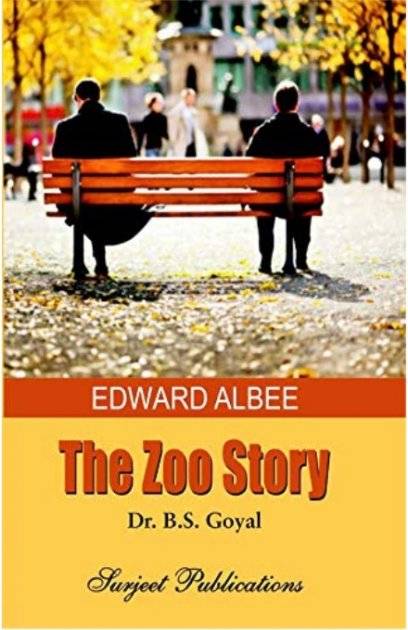
The Zoo Story by Edward Albee
“A respected publisher murdered a nobody in a fight over a park bench.” Sounds weird, right? Wait till you hear the reason. Edward Albee explores the hypocrisy of American Capitalism and connects it with the bourgeoisie culture. A well-respected man working for a publishing company with children and a pet parrot, basically a perfect American man, meets a random person on a park bench. After being modestly hesitant, he initiates conversation with him and finds about the little details of his life. The two men are complete opposites. The former owns a fine house in the Upper Westside of New York City while the latter struggles to sustain himself. The first one appears way more well-mannered and the second looks like a cheap uncivilised nobody. As the play progresses, the two end up fighting over a park bench, a property that neither of them owns. While it is still alright for the reader to assume that Jerry, being an uncivilised man would end up in a petty fight like that, it is quite impossible to witness a man full of etiquette quarrel over public property. This is Albee’s power to question what is acceptable according to civilised human standards.
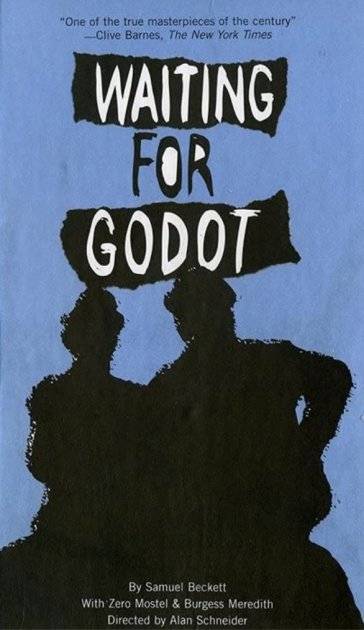
Waiting For Godot by Samuel Beckett
An immersive hundred-page read, Beckett’s Waiting for Godot is capable of making a star appearance whenever absurd drama is talked about. Beckett has contributed hugely to the realm of absurd plays but this work shines separately. The commonness of the tragic heroes in Beckett’s play goes to the extent of two tramps, Vladimir and Estragon. As the play opens, both the protagonists can be seen waiting for someone called Godot beneath a leafless tree. Beckett completely takes away the focus from Godot (who actually never arrives) to the lives of these two tramps whose struggle is mere survival. In his very short two-act play, he is able to highlight the existential crisis of human beings. In the end, the audience is told that Godot is not going to come. No one knows why or who he was or whether he even exists. All we get to know is life and contemplations of death as told by the two tramps.
There are many more ‘absurd’ masterpieces by the playwrights mentioned above and their contemporaries. These absurd plays which stand true to their classification, open up ample space for dialogue about the modern human condition. They press the audience to think twice or even more, about the unjust modern world which creates a facade of endless possibilities but in actuality, makes people question their purpose on Earth.



